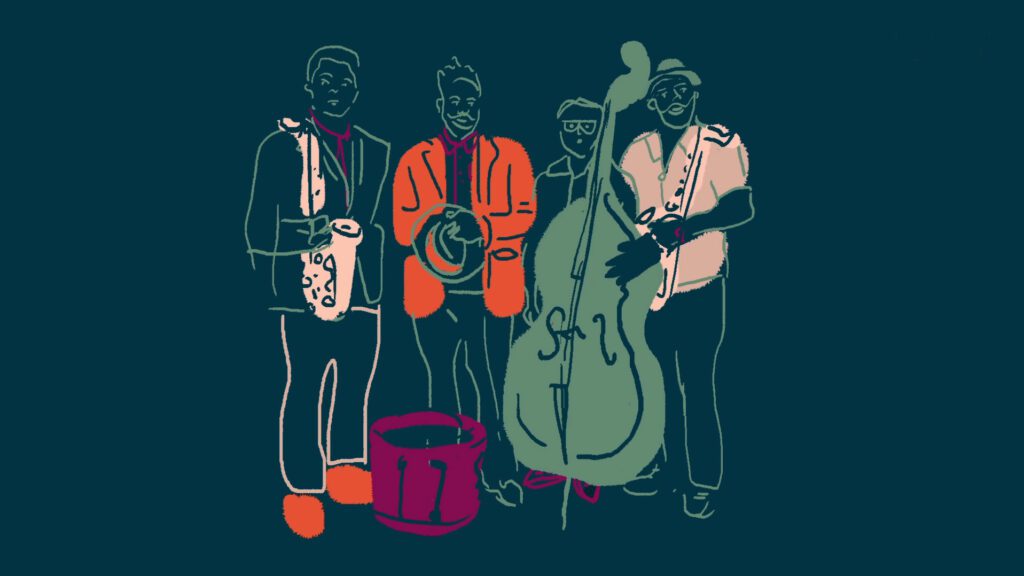Jazz is an upbeat, melodic genre of music that embodies characteristics seen in genres like Blues, Ragtime, African classical, and Eurocentric music, Making it the first genre to properly represent the cross-culture of music while accrediting the black roots within Jazz.
Traditional Jazz: The Beginning of an Era
In the early 1900s in West Africa, formerly enslaved people would congregate in the Congo square to make music and dance as a form of expression for their newfound freedom. During this time, New Orleans cornet player Charles “Buddy” Bolden was considered one of the first musicians to develop the Jazz style. He would increase the tempo of traditional Blues music, improvising with his horn, catching listeners’ attention, and inviting the world into the traditional Jazz scene. With the popularity of this new music style increasing, other musicians in the New Orleans area began to play this style in shows, parades, and other social events.
Bandleader and cornet player Joseph Nathan “King” Oliver was a premier trumpeter during the 20s, notable for his trumpet mutes with timbre changes that gave his music a different sound from traditional jazz. As the creator of one of the first big New Orleans jazz bands, Oliver started a generation of cornet players who adopted his techniques of four square rhythms. In 1921, Oliver’s band was formed in Chicago with his bandmates also being musicians from New Orleans, spreading this Creole Jazz style and bringing new music to Chicago. In addition to the band members, Oliver’s protégé at the time, Louis Armstrong, was on the second cornet. In 1924 however, the band broke up, and Oliver performed solo music to showcase his vocal abilities and rhythm choices while also continuing to mentor Armstrong. Notable works of Oliver are “Dippermouth Blues” and “Wa Wa Wa.” The trumpet playing displayed in these records influenced younger cornet players to switch to trumpet and adapt their musical stylings to Olivers’. Oliver gave Armstrong his job In Kid Ory’s band in Chicago; Armstrong credits Oliver as his idol and inspiration, saying, “I still think that if it had not been for Joe Oliver, Jazz would not be what it is today.


